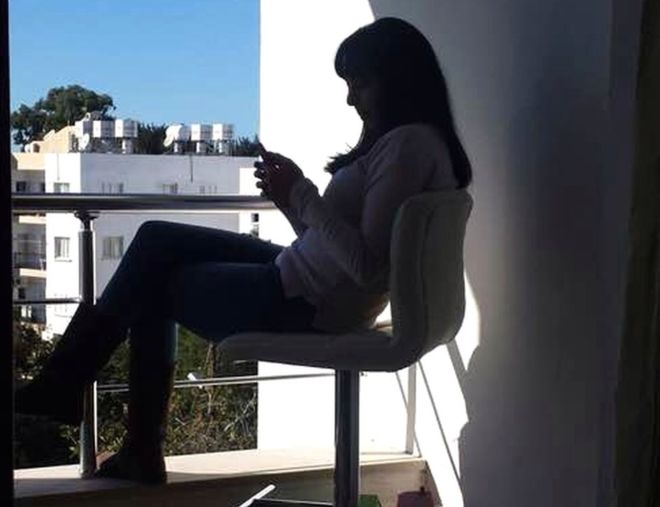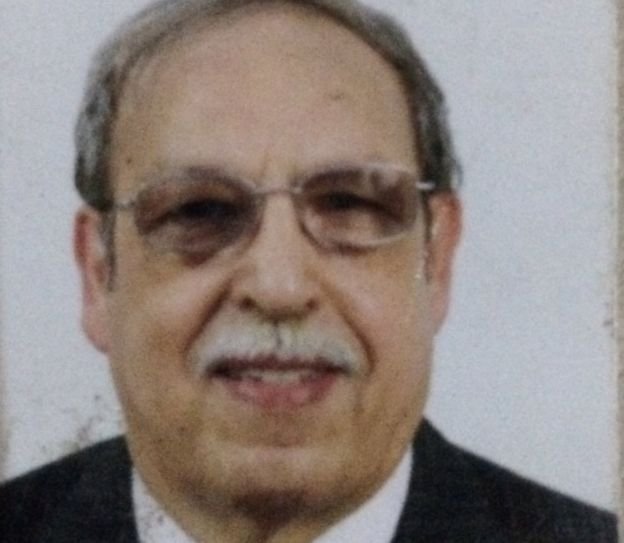
Kidnapping has become a growing problem in Libya, where three governments and several militia are vying for power. The BBC's North Africa correspondent Rana Jawad has been talking to people personally affected.
"My father was kidnapped yesterday."
Not quite the text message you expect to get from a close friend on a Friday morning. I called to confirm that it was not a cruel auto-correction and rushed over to her place. She looked remarkably composed but exhausted.
Here, in the comfort and safety of neighbouring Tunisia, the insecurities engulfing Libya seem like a galaxy away.
She gets another call, and another, about a dozen in less than an hour.
She stands, frowning, and clutching the phone, trying to make sense of what was being communicated to her. She paces, kicks the kitchen chair, and eventually sits down calmly again.

Salem Beitelmal has been missing for more than a month
In post-revolution Libya, either armed gangs or semi-official militias kidnap people. The motives vary, from ransom, to revenge, to politics but the devastation and helplessness that the victims' families experience is the same.
I saw this first-hand through my friend, Lina (not her real name).
Her 68-year-old diabetic father, university professor Salem Beitelmal, was abducted. Six weeks on, the family is still not entirely sure which armed group took him or why. But they have learned that his car was found abandoned on the side of a road, west of the Libyan capital, Tripoli.
Official statistics are not available but many Libyans I know have either first-hand experience of being kidnapped or have had a family member or friend abducted. Most families do not speak out, fearing that if they go public their loved ones will be killed or tortured in captivity.
So what happens after a kidnapping?
The power vacuum in Libya means that in case of an emergency, you call a friend, a neighbour, and every local militia under the Libyan sun.

Numerous rival militia groups are vying for power in Libya
Over the past month, I have watched Lina agonize over an investigation that often entails talking to people she mistrusts. The family has a pool of contacts she is calling, but they are strangers.
At times, she looked like she was going around in circles and slowly being sucked into a vortex of misinformation.
"You don't have institutions that you can turn to that are there to protect and serve the citizens. So the reality then becomes that it is the citizens who have to take matters into their own hands," she tells me.
"But at the same time there's a strong social network that kind of replaces that, and that's how Libyans have been dealing with everything," she says.
Lawlessness in Libya

Long-serving ruler Col Muammar Gaddafi was overthrown in October 2011
Since then there has been no central authority
Myriad armed militias took control of different parts of the country
The UN has backed a government based in Tripoli
There are two other rival governments
Source: http://www.bbc.com/news/world-africa-40132969
Not indicating that the content you copy/paste is not your original work could be seen as plagiarism.
Some tips to share content and add value:
Repeated plagiarized posts are considered spam. Spam is discouraged by the community, and may result in action from the cheetah bot.
Creative Commons: If you are posting content under a Creative Commons license, please attribute and link according to the specific license. If you are posting content under CC0 or Public Domain please consider noting that at the end of your post.
If you are actually the original author, please do reply to let us know!
Thank You!
Downvoting a post can decrease pending rewards and make it less visible. Common reasons:
Submit